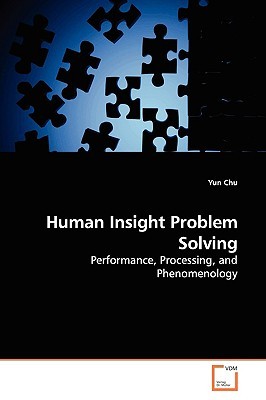
- We will send in 10–14 business days.
- Author: Yun Chu
- Publisher: VDM Verlag
- Year: 2009
- Pages: 92
- ISBN-10: 3639144937
- ISBN-13: 9783639144932
- Format: 15.2 x 22.9 x 0.6 cm, softcover
- Language: English
- SAVE -10% with code: EXTRA
Reviews
Description
Eight experiments were conducted using a suite of insight problems including the cheap necklace problem (CNP), 8-ball, and 9-dot. A set of experiments investigated the effects of two hints derived from two contemporary theoretical accounts of insight-Criterion for Satisfactory Progress theory (CSP) and Representational Change Theory (RCT). Fewer participants in the CSP condition used maximizing moves. They required fewer trials to reach solution in the CSP. The second set of experiments investigated metacognition in the form of feelings-of-warmth (FOW) ratings for each move in insight. The microstructure of problem-solving lent support to CSP while the macrostructure lent support to RCT. The highest ratings corresponded to maximizing moves showing apparent progress supporting the CSP theory. An experiment controlled look-ahead by limiting the time to judge each move in a sequence of moves in the CNP. Partial support was found for the CSP theory. CSP and RCT are not necessarily incompatible. The last set of experiments found correlations among problem solving ability, look-ahead ability, fluid intelligence, working memory, and practice.
EXTRA 10 % discount with code: EXTRA
The promotion ends in 16d.02:38:51
The discount code is valid when purchasing from 10 €. Discounts do not stack.
- Author: Yun Chu
- Publisher: VDM Verlag
- Year: 2009
- Pages: 92
- ISBN-10: 3639144937
- ISBN-13: 9783639144932
- Format: 15.2 x 22.9 x 0.6 cm, softcover
- Language: English English
Eight experiments were conducted using a suite of insight problems including the cheap necklace problem (CNP), 8-ball, and 9-dot. A set of experiments investigated the effects of two hints derived from two contemporary theoretical accounts of insight-Criterion for Satisfactory Progress theory (CSP) and Representational Change Theory (RCT). Fewer participants in the CSP condition used maximizing moves. They required fewer trials to reach solution in the CSP. The second set of experiments investigated metacognition in the form of feelings-of-warmth (FOW) ratings for each move in insight. The microstructure of problem-solving lent support to CSP while the macrostructure lent support to RCT. The highest ratings corresponded to maximizing moves showing apparent progress supporting the CSP theory. An experiment controlled look-ahead by limiting the time to judge each move in a sequence of moves in the CNP. Partial support was found for the CSP theory. CSP and RCT are not necessarily incompatible. The last set of experiments found correlations among problem solving ability, look-ahead ability, fluid intelligence, working memory, and practice.


Reviews